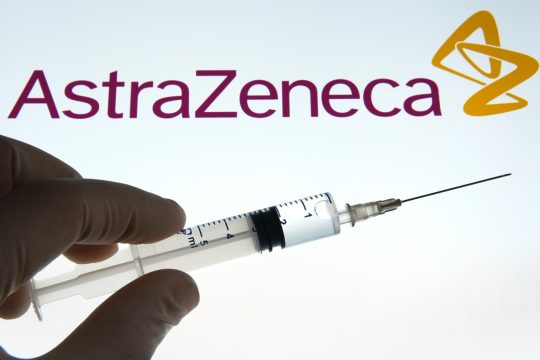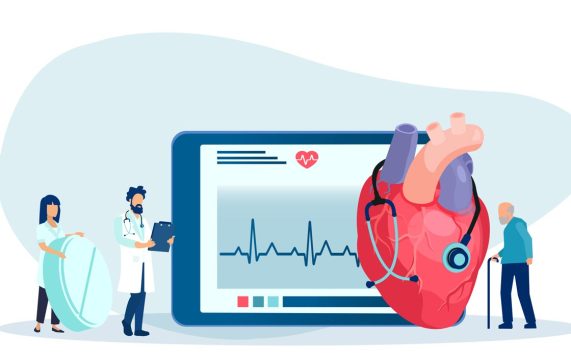Advertisment
ESOT 2015: Tailored self-management interventions for vulnerable populations
by Maria Dalby: Self-management after undergoing transplantation requires skills and confidence both with respect to taking medications, adhering to medical advice and coping with everyday life. A joint symposium arranged by the European Transplant Allied Healthcare Professionals (ETAHP) and the International Transplant Nurses Society (ITNS) explored ways of supporting self-management after transplantation in vulnerable patient groups including adolescents and young adults, and the elderly.
As a starting point, Professor Cynthia Russell from the University of Missouri, Kansas City USA, described the concept of health literacy and outlined how low health literacy is a prevalent problem in all fields of healthcare and is linked to poor outcomes and increased costs. Health literacy is defined as the knowledge, motivation and competence that the patient needs to access, understand, appraise and apply health information and make judgements and decisions regarding healthcare and disease prevention to maintain and improve his/her quality of life.1 A survey of eight EU member states published in 2012 showed that between one third and half of patients had ‘problematic’ health literacy, and up to 20% had inadequate health literacy.2 In the US, 35% of patients – equivalent to 77 million people – had basic or below basic health literacy, which means they would have difficulties understanding simple instructions regarding medications or tests.3 Patients with poor health, long-term illnesses, low education, non-white ethnicity and/or poor socio-economic status are especially vulnerable to limited health literacy.1, 4 A systematic review has shown that limited health literacy is common amongst patients with chronic kidney disease,5 and is linked to longer waiting times for referral for transplantation.6 In kidney transplant patients, limited health literacy has been linked to poorer physical and mental health, increased mortality, non-adherence, and worse self-management skills.4
Health literacy has been described as ‘the newest vital sign’;7 a number of tools are available for assessing health literacy in clinical practice, including the Quick Health Literacy Assessment8 and the Singe Item Literacy Screener (SILS).9 The US Agency for Healthcare Research and Quality has published a toolkit with recommendations for addressing low health literacy which includes communicating with patients using plain language and words with no more than two syllables, speaking slowly, checking the patient’s understanding at brief intervals, and using interpreters if necessary.10 Written materials should be set in a large, easy-to-read font with appropriate text bullets and illustrations. Photonovels, educational items with comic book-style illustrations, have been found to be effective tools for overcoming language barriers.11
Young adult transplantation patients pose a considerable challenge to healthcare professionals, often due to risk-taking behaviour or difficulties transitioning from paediatric to adult healthcare which can manifest themselves as poorer graft and patient outcomes.12, 13 Dr Paul Harden (Oxford University Hospitals) described how his centre has addressed this by creating dedicated young adult clinics where patients are seen outside the hospital, for example in a youth club or community centre, in groups to develop peer relationships and build self-confidence. A very important member of the team is a youth worker who provides one to one peer support and can refer patients on based in individual needs. Data collected at Oxford with a mean follow-up of 24 months show that young adult kidney transplant recipients are less likely to lose their kidneys if they attend a dedicated young adult clinic compared with a standard adult clinic.14, 15
Patients aged over 65 years are increasingly being considered for transplantation and are posing new challenges for healthcare professionals.16 Dr Oliver Mauthner (University of Basel, Switzerland) described how frailty, the cycle of functional decline and negative health outcomes that becomes increasingly prevalent with age, is a significant risk factor for delayed graft function and mortality in kidney transplant recipients.17, 18 The GERAS study, named after the Greek god of old age, is an ongoing project within the Swiss Transplant Cohort Study (STCS) which will explore if frailty status and mild cognitive impairment at the time of kidney transplantation are predictive for clinical, psychosocial and health economic outcomes, with patient and graft survival as primary outcomes.
Professor Cynthia Russell (Kansas City) Dr Paul Harden (Oxford) and Dr Oliver Mauthner (Basel)
References
- Sorensen K, Van den Broucke S, Fullam J, et al. Health literacy and public health: a systematic review and integration of definitions and models. BMC Public Health 2012;12:80.
- CONSORTIUM H-E. Comparative report of Health literacy in Eight EU Member states: The European Health Literacy Survey (HLS-EUC), 2012.
- Kutner M, Greenberg E, Jin Y, et al. The Health Literacy of America’s Adults: Results From the 2003 National Assessment of Adult Literacy (NCES 2006–483). Washington, DC: US Department of Education. National Center for Education Statistics, 2006.
- Gordon EJ, Wolf MS. Health literacy skills of kidney transplant recipients. Prog Transplant 2009;19:25-34.
- Fraser SD, Roderick PJ, Casey M, et al. Prevalence and associations of limited health literacy in chronic kidney disease: a systematic review. Nephrol Dial Transplant 2013;28:129-37.
- Grubbs V, Gregorich SE, Perez-Stable EJ, et al. Health literacy and access to kidney transplantation. Clin J Am Soc Nephrol 2009;4:195-200.
- Weiss BD, Mays MZ, Martz W, et al. Quick assessment of literacy in primary care: the newest vital sign. Ann Fam Med 2005;3:514-22.
- Chew LD, Bradley KA, Boyko EJ. Brief questions to identify patients with inadequate health literacy. Fam Med 2004;36:588-94.
- Morris NS, MacLean CD, Chew LD, et al. The Single Item Literacy Screener: evaluation of a brief instrument to identify limited reading ability. BMC Fam Pract 2006;7:21.
- Quality AfHRa. Health Literacy Universal Precautions Toolkit, 2nd Edition. Rockville, MD, 2015.
- Nimmon LE. Within the eyes of the people: using a photonovel as a consciousness-raising health literacy tool with ESL-speaking immigrant women. Can J Public Health 2007;98:337-40.
- Van Arendonk KJ, James NT, Boyarsky BJ, et al. Age at graft loss after pediatric kidney transplantation: exploring the high-risk age window. Clin J Am Soc Nephrol 2013;8:1019-26.
- Watson AR. Non-compliance and transfer from paediatric to adult transplant unit. Pediatr Nephrol 2000;14:469-72.
- Harden PN, Walsh G, Bandler N, et al. Bridging the gap: an integrated paediatric to adult clinical service for young adults with kidney failure. BMJ 2012;344:e3718.
- van der Net JB, Harden PN. Reduced Rejection Rates and Improved Graft Survival with a Dedicated Young Adult Service. J Am Soc Nephrol 2014;25:369A.
- Abecassis M, Bridges ND, Clancy CJ, et al. Solid-organ transplantation in older adults: current status and future research. Am J Transplant 2012;12:2608-22.
- McAdams-DeMarco MA, Isaacs K, Darko L, et al. Changes in Frailty After Kidney Transplantation. J Am Geriatr Soc 2015.
- McAdams-DeMarco MA, Law A, Salter ML, et al. Frailty and early hospital readmission after kidney transplantation. Am J Transplant 2013;13:2091-5.





